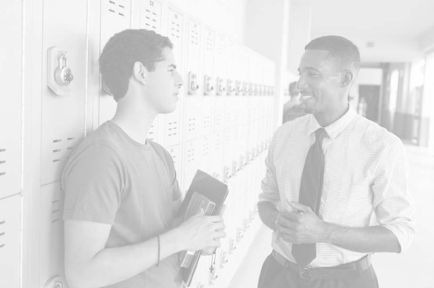Meaningful Connections in a Safe and Secure Learning Environment
Every child needs to feel appreciated, valued, and safe. schools are ideally situated to form deep relationships with students and their families. however, the need to become a trauma‐informed school is an increasing necessity for large and small schools alike.
Why is this Important?
Teachers and school leaders have always sought to build relationships with students. These casual relationships are critical, but no longer enough for many students. By some reports, one in three children experience an adverse childhood experience such as abuse, neglect, or family distress. These experiences can alter brain structure and function. Schools can support traumatized students but need proper training and school supports to do so appropriately.
| Key Questions |
|
Do I make time and seize opportunities to build meaningful relationships with students? As a school leader, am I supporting my staff to connect with students in a safe and secure learning environment? Do I understand childhood trauma and how it impacts children and learning? Am I aware of the adverse experiences that my students may face outside of school? |
Next Steps
- Teachers need to ensure that covering curriculum, raising test scores, or other institutional priorities are not preventing them from building meaningful connections with students. Children come first.
- Principals need to support teachers in opportunities to make connections with all students.
- Trauma‐informed support requires specialized training and clear expectations for all staff. School leadership needs to provide the necessary training to ensure the emotional needs of students are foremost.

